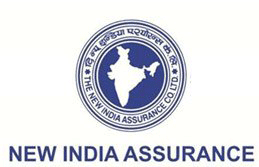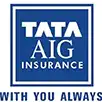Tips for buying best mediclaim insurance
India health insurance tips and tricks to choose the best medical insurance in India
Know more »A copayment or copay is a fixed amount for a covered insurance benefit, paid by a patient to the hospital/provider while receiving the required treatment. It may be defined in an insurance policy and paid by an insured person each time a medical service is accessed. It must be paid before any policy benefit is payable by an insurance company. Copayments do not usually contribute towards any policy out-of-pocket expenses. So, Co-pay is the % of the claims expense that the policyholder will need to pay against each claim. Most senior citizen health plans come with a co-payment ranging from 10% to 30% depending on the treatment availed by the insured. Opting for a higher co pay could also mean a lower premium.
Co payment are normally introduced in insurance plans to ensure small claims for regular/routine treatment like cold/cough etc are not filed by the insured. It also acts a deterrent to the insured going to premium hospitals and seeking unnecessarily high cost treatment since the insured will end up paying their share of the overall expenses. On the flip side, it may also discourage the insured from taking some advanced and costly treatment which may actually be required because they would end up paying their share of the cost.
| Insurance Company / Product Name | Age / Eligibility | Sum Insured Range | Unique Features of this plan |
|---|---|---|---|
Apollo Munich - Optima Restore |
Coverage is offered from the age of 5 years till maximum entry age of 65 years. A dependent child can be covered from the 91st day (if either parents are covered under this policy) Lifelong Renewal |
₹ 3 lacs - ₹ 50 lacs |
|
Star Health – Family Health Optima Insurance Plan (Individual & Family) |
Persons between 18 years and 65 years of age at the time of entry can take this Insurance. Dependent children can be covered from 16 days and up to 25years of age (upto 3 children) Lifelong renewals |
₹ 3 lacs - ₹ 25 lacs |
|
HDFC Ergo M: health Suraksha |
Entry Age : 91 days . Children below 5 years would be covered provided both the parents are covered under our policy. No Maximum Cap on Entry Age Lifelong Renewal |
₹ 3 lacs - ₹ 50 lacs |
|
Bajaj Allianz Health Guard |
Persons between 18 years and 65 years of age at the time of entry can take this Insurance. Dependent children can be covered from 3 months and up to 30 years of ag Lifelong renewals |
₹ 1.50 lacs - ₹ 50 lacs |
|
Tata AIG Medicare Premier |
Entry Age : 91 days Children below 5 years would be covered provided both the parents are covered under our policy. Persons between 18 years and 65 years of age at the time of entry can take this Insurance. Lifelong Renewal |
₹ 5 lacs - ₹ 50 lacs |
|
Religare Health – Care |
Entry Age : 91 days Persons above 18 years of age at the time of entry can take this Insurance. No Maximum Entry Age Lifelong Renewal |
₹ 4 lacs - ₹ 40 lacs |
|
Niva Bupa Health Premia |
Any Age Enrolment Lifelong Renewal |
₹ 10 lacs - ₹ 300 lacs |
|
New India Mediclaim Premier |
All the persons proposed for this Insurance should be between the age of 18 years and 65 years. Children between the age of 3 months and 18 years are covered provided one or both parents are covered concurrently. Lifelong Renewals. |
₹ 1 lacs - ₹ 15 lacs |
|
SBI General Arogya Premier |
Entry Age : 3 months Maximum Entry Age : 65 years Lifelong Renewals |
₹ 0.50 lacs - ₹ 30 lacs |
|
Royal Sundaram Lifeline |
Entry Age : 91 days Persons above 18 years of age at the time of entry can take this Insurance. No Maximum Entry Age Lifelong Renewals |
₹ 2 lacs - ₹ 150 lacs |
|
ManipalCigna ProHealth |
Min Entry Age: Child - 91 days, Adult - 18 years Max Entry Age: No limit Cover Type: Individual and Family Floater/ Lifelong Renewal |
₹ 2.5 lacs - ₹ 100 lacs |
|
It may not be entirely factual to state that most health insurance plans in India are ridiculously expensive and unfair. One must realize that since India is today so uninsured (@less than 20% insurance penetration and that too in Urban India with Rural India’s insurance penetration @around 15%), the premiums also need to be shared by this smaller group of insureds and the burden of the insurance claims falls upon a smaller section of India’s population. This results in high premiums for the paying population. We must realize that once more and more individuals get insured under Health insurance, the overall cost of such policies will definitely start falling. The Indian Government has also taken steps to increase health insurance penetration through their Government funded schemes but there is still a long way to go.
By nature, Indians are spontaneous and emotional and rarely go into the specifics and details of anything. The same is true of Health insurance as well. Most insureds do not go through the policy terms and conditions before buying any insurance plan or after having bought the plan to understand what is covered and what is excluded. Making many assumptions, they get to know about the coverage (or lack of coverage) only at the time of a claim. Hence when their claim is denied, they tend to believe that the policy is unfair even though the coverage was the same all along. The IRDAI is now taking steps to standardize coverages and terms across all insurance companies to ensure wider coverage and more transparent claims settlement.
If the insured takes Buying their Health Insurance plan as seriously as buying other assets, this scenario will not arise. This is where distributors like Eindiainsurance also come into the picture. The insured can visit the website and spend quality time understanding the coverages and premiums before making a decision to ensure they get the optimum coverage at competitive premiums.
India health insurance tips and tricks to choose the best medical insurance in India
Know more »Find out the different reasons why a medical insurance claim is rejected, Cashless hospitalization, Reimbursement.
Know more »Factors for medical insurance in India, How much is the premium and the coverage offered by India health insurance plans.
Know more »You can buy insurance online by using a credit/debit card, UPI, direct funds transfer using NEFT or RTGS or by using a cheque.
Know more »Insurance customers can quickly compare the details of benefits offered under Indian mediclaim insurance policies.
Know more »Compare Indian health insurance policies, Health insurance India comparison.
Know more »Health insurance blogs - Information on health or medical insurance coverage in India.
Know more »FAQ related to Indian health insurance. Get answers for any health insurance questions.
Know more »Every individual must buy insurance and for themselves and members of their family, based on their requirements.
Know more »Family floater is one single policy that takes care of the hospitalization expenses of your entire family.
Know more »A typical Top Up Health Insurance plan is an additional coverage for an individual who is already covered under an existing Health policy.
Know more »Accident, is an unexpected event, typically sudden in nature and associated with injury, loss, or bodily harm.
Know more »